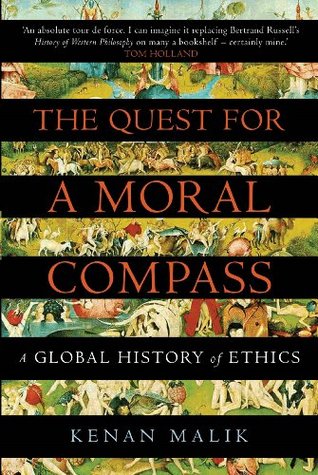More on this book
Community
Kindle Notes & Highlights
We eat well, we drink well, we live well, Ignatieff observed, ‘but we do not have good
‘a loss of
confidence in the extent to which humans could be said to be on a pedestal above the swamp of animal brutishness
dented human self-esteem.
‘apes have become more angelic’ while
humans have become ‘more apish
The quest for a moral compass has been a historical journey not simply to find answers to questions of right and wrong, good and bad, but also to understand what it is to be human, what humans should be, and the
relationship between the two. The ‘Fall of Man’, the loss of faith in the human capacity to act rationally and morally, and collectively to transform the world, has narrowed the conception of what humans could be, confined our notion of what we are and eroded the link between the two. The result is a polarization of the moral debate between those who insist that morality is nothing more than individual preference and those who desperately search for some external agent or realm in which to fix the objectivity of values, whether that be God or science, nature or the transcendent.
not moral but social.
Viktor Frankl
Man’s Search for Meaning
‘Man is ultimately self-determining,
‘Man does not simply exist but always decides what his existence will
humans as creators of value and as makers of meaning
‘man-as-he-happens-to-be
‘man-as-he-could-be
It is comforting to imagine that notions of right and wrong, good and bad, come predefined by some external authority, that there already exists a moral map, and that our job is merely to work out how to navigate it,
Once we required such comfort because human societies were not sufficiently developed for us to imagine how we could create our own moral maps. Today we require such comfort because we have lost faith in our ability to be moral cartographers, leading many to recoil at the very thought of humans as moral map makers.
The human condition is, however, that
of possessing no moral safety net. No God, no scientific law, nor yet any amount of ethical concrete, can protect us from the dangers of falling off the moral tightrope that we are condemned to walk as human beings. It can be a highly disconcerting pr...
This highlight has been truncated due to consecutive passage length restrictions.


